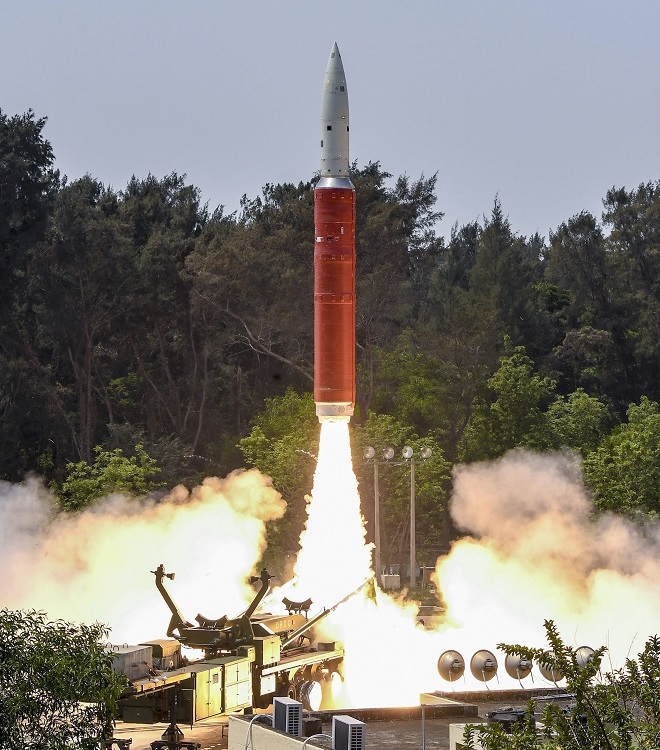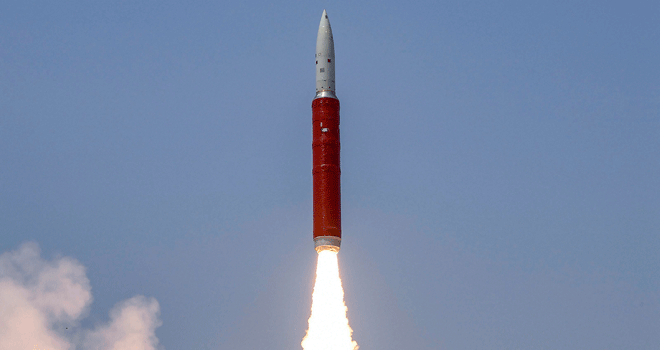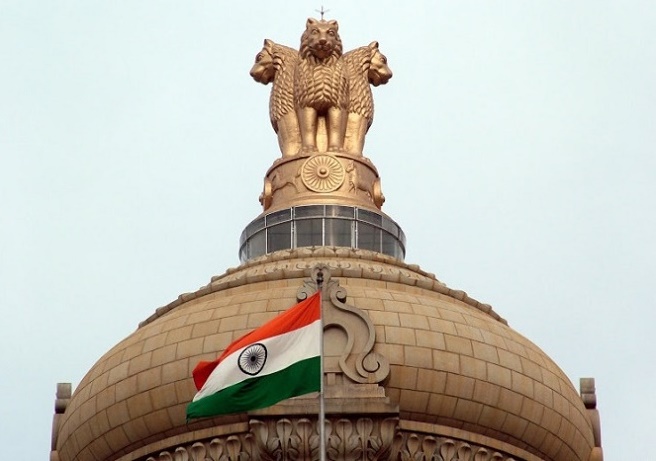
Ballistic Missile Defence (BMD) Interceptor missile being launched by Defence Research and Development Organisation (DRDO) in an Anti-Satellite (A-SAT) missile test 'Mission Shakti' engaging an Indian orbiting target satellite in Low Earth Orbit (LEO) in a 'Hit to Kill' mode from Abdul Kalam Island, Odisha. Photo: PTI.
NEW DELHI (PTI): India's successful anti-satellite missile test on Wednesday showed that the country now possesses the capability to strike satellites in outer space with centimetre-level accuracy and precision, DRDO Chairman G Satheesh Reddy said Wednesday.
Reddy, who oversaw the top secret operation, said the government accorded clearance to the project around two years back with an aim to deter threats to the country's space assets.
In a major feat, a DRDO-developed missile destroyed a low-orbiting satellite in a critical test that catapulted India as a space power alongside the US, China and Russia.
"It is a great achievement for India as the technology used for the test has been completely developed indigenously," Reddy told PTI in an interview.
"The test was a reflection of India's growing capability to develop critical technology and it will act as a good deterrence," he said adding India was the fourth country to go for an anti-satellite missile test after the United States, Russia and China.
The Defence Research and Development Organisation (DRDO) said a Ballistic Missile Defence (BMD) Interceptor Missile successfully engaged an Indian orbiting target satellite in Low Earth Orbit (LEO) in a 'Hit to Kill' mode.
"The interceptor missile was a three-stage missile with two solid rocket boosters. Tracking data from range sensors has confirmed that the mission met all its objectives," it said.
The test was conducted, under 'Mission Shakti' operation, from the Dr APJ Abdul Kalam Island in Odisha.
Reddy said the test has demonstrated India's capability to defend its assets in outer space and is a reflection of the country's growing capability to develop critical technology
"The shooting down of a satellite with a missile reflected that we have matured to develop technology which could achieve accuracy in terms of centimetres" said Reddy, adding clearance for the project was given over two years back.
"The project was implemented in the fastest way possible and it showed the DRDO's capability in doing such programmes," he said.
Reddy said the technology used has been completely developed indigenously and now India stands as one of the four nations to have it.
India is emerging as a major technologically advanced nation in space sector, he said.
The DRDO said the test has once again proven the capability of indigenous weapon systems.
India is yet to have a comprehensive national security doctrine. However, a joint operational doctrine for the Army, the Navy and the Air Force, released in April 2017 had proposed to set up a 'Defence Space Agency' to deal with issues relating to outer space.
Meanwhile, the Ministry of External Affairs said the test was not directed against any country and that India has no intention of entering into an arms race in outer space.
"The test is not directed against any country. India's space capabilities do not threaten any country and nor are they directed against anyone," the MEA said in a 10-point explainer on the anti-satellite missile test.
 Previous Article
Previous Article Next Article
Next Article












The Indian Air Force, in its flight trials evaluation report submitted before the Defence Ministry l..
view articleAn insight into the Medium Multi-Role Combat Aircraft competition...
view articleSky enthusiasts can now spot the International Space Station (ISS) commanded by Indian-American astr..
view article